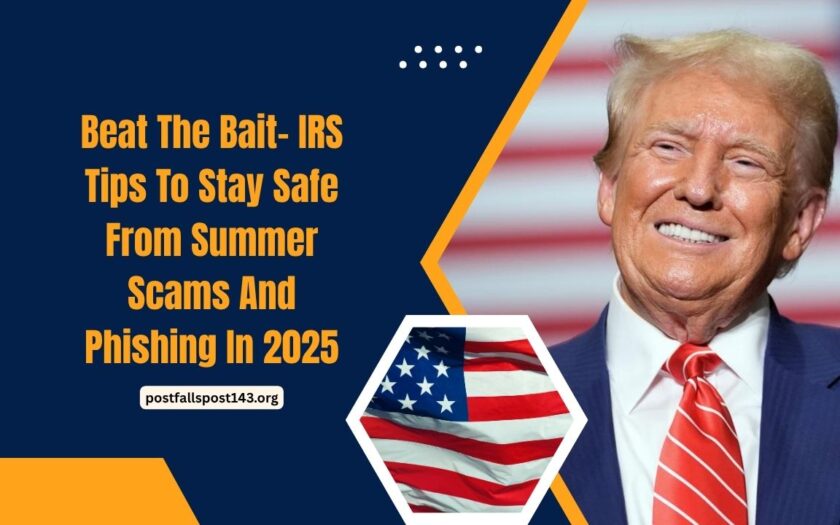As the summer of 2025 unfolds, so do new phishing and scam attempts targeting taxpayers. The Internal Revenue Service (IRS) has warned that scammers are impersonating the agency through emails, text messages, and phone calls.
These scams often mention tax refunds, payment requests, or threats of legal action. Understanding how these scams work and how to respond is essential to protect your personal and financial information.
Common IRS Scam Tactics in 2025
Scammers frequently impersonate Internal Revenue Service agents and attempt to trick taxpayers into revealing Social Security Numbers, bank details, and login credentials.
These scams typically increase during tax seasons and summer months. Below are the primary ways scammers contact victims:
| Scam Type | Details |
|---|---|
| Phishing Emails | Claim to offer refunds or request verification of your tax account. |
| Smishing (Texting) | Sends links to fake Internal Revenue Service websites demanding sensitive information. |
| Spoofed Calls | Threaten legal action or demand urgent payments via prepaid cards. |
| Social Media Scams | Fake profiles pretending to be Internal Revenue Service representatives offering help. |
IRS Guidelines to Avoid Scams and Phishing
The Internal Revenue Service has provided a clear set of rules to help taxpayers avoid falling victim to scams during the summer of 2025:
1. Do Not Share Personal Information
Never provide your Social Security Number, bank account information, or Internal Revenue Service PIN via email, text, or over the phone unless you are certain you’re speaking with an official IRS agent.
2. Recognize Red Flags
If you receive messages or calls that:
- Ask for immediate payment,
- Threaten arrest or lawsuit,
- Claim you are owed a large refund unexpectedly,
then you’re likely being targeted.
3. Report Phishing Attempts
If you receive a suspicious message:
- Do not click on links or open attachments.
- Do not reply.
- Forward the entire message (without screenshots) to [email protected].
- Delete the message after reporting.
4. Be Wary of Fake Calls
Use call-blocking apps or your phone’s built-in features to block potential scam numbers. If you receive a threatening Internal Revenue Service call:
- Hang up immediately.
- Visit your Internal Revenue Service online account to verify if any actions are required.
- Only return calls to official Internal Revenue Service phone numbers listed on their website.
Additional Tools and Resources
The Internal Revenue Service recommends using trusted organizations to identify and report scams, such as:
- Consumer Reports
- CTIA (Cellular Telecommunications Industry Association)
- IRS Phishing Portal: www.irs.gov/privacy-disclosure/report-phishing
You can also verify any claims by logging in to your official IRS online account, where you can view tax balances, refund status, and notices.
Scammers are constantly evolving their tactics, especially during high-alert seasons like summer. The Internal Revenue Service reiterates that it does not initiate contact through text, email, or social media.
Understanding how to identify, report, and block these scams is crucial for every taxpayer. Stay informed, trust official channels, and report suspicious activity promptly to help stop fraudsters and keep your personal information safe.
FAQs
How do I know if an IRS email is a scam?
Real Internal Revenue Service emails will never ask for personal information or payment. If in doubt, forward it to [email protected].
Can scammers use real IRS phone numbers?
Yes, scammers can spoof real numbers. Always verify by calling the official Internal Revenue Service contact line from their website.
What should I do if I accidentally clicked a scam link?
Disconnect from the internet, run an antivirus scan, change your passwords, and monitor your Internal Revenue Service and bank accounts closely.

